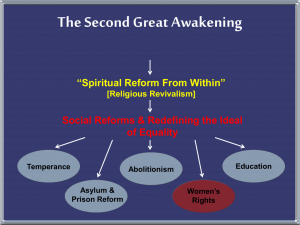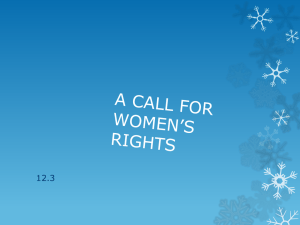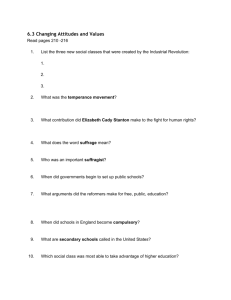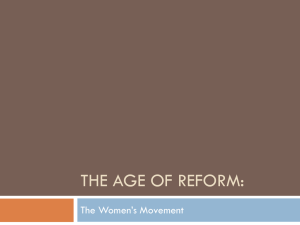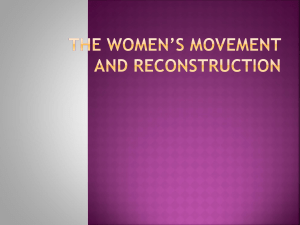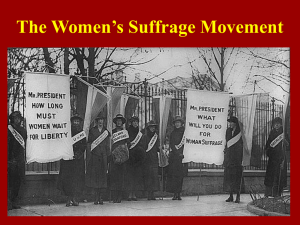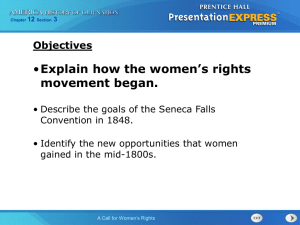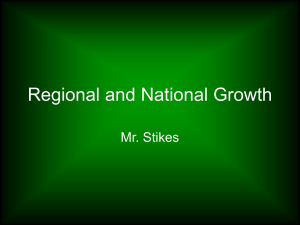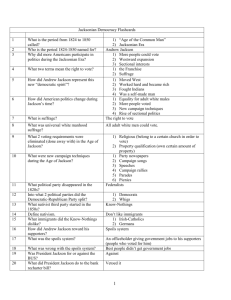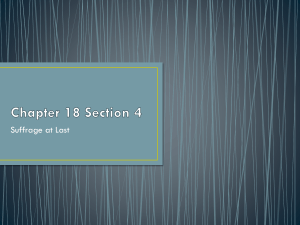Andrew Jackson - Worth County Schools
advertisement
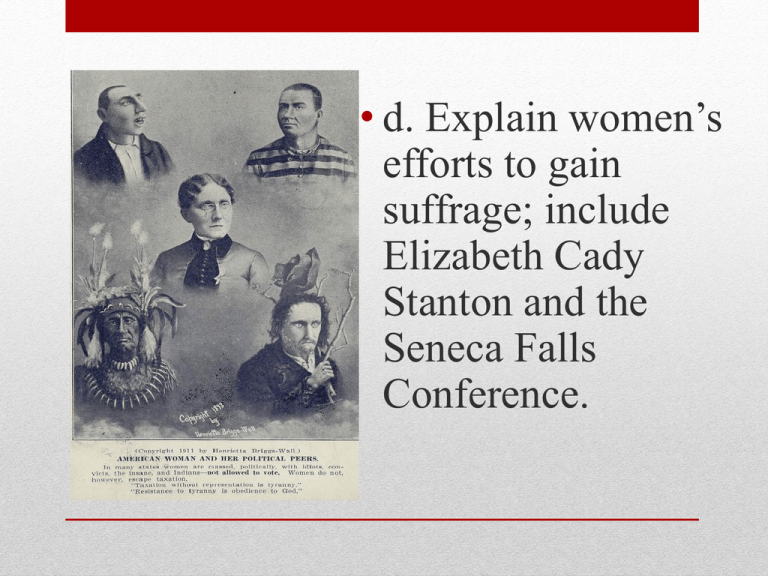
• d. Explain women’s efforts to gain suffrage; include Elizabeth Cady Stanton and the Seneca Falls Conference. Women’s Movement • In the early 1800s women's primary role was to raise the children. • Many women became involved in various moral causes (abolition and temperance). • The involvement in these movements led women to want the right to vote in order to politically support these issues. Seneca Falls Convention • In 1848, Elizabeth Cady Stanton, who had been active in the antislavery movement, helped organize the Seneca Falls Conference in NY. • Stanton’s main focus was on Women’s Suffrage. • The Convention is considered the beginning of the Women’s Suffrage Movement. e. Explain Jacksonian Democracy, expanding suffrage, the rise of popular political culture, and the development of American nationalism. Rise of popular political culture Jackson’s presidential campaigns caused an increase in public participation in politics: -Campaign rallies were first introduced. -Both sides accused the other of wrong doing and these accusations were turned into songs, buttons, and posters. Andrew Jackson -Voting rights were expanded in the early1800s, many working class men could now vote. -Andrew Jackson wins the Presidential election in 1828-Jackson is seen as “The People’s President”. -Was an orphan, had little formal education, fought in several duals, and was the hero of the War of 1812. Jacksonian Democracy Jackson sought to strengthen the executive branch and weaken Congress: -expanded voting rights to broaden political participation. - Spoils system: appointed people to government jobs based on party loyalty. - favored Manifest Destiny. American Nationalism Believed that the US was superior to other nations and people: -Most had the same religion (Protestant), language, and culture. -Should expand (Manifest Destiny) to spread this belief. What is nationalism? Questions 1. What was the importance of the Seneca Falls Conference? 2. Why did women want suffrage? 3. How did Jackson’s presidency lead to greater participation by the electorate? 4. What caused the rise in political popular culture?
